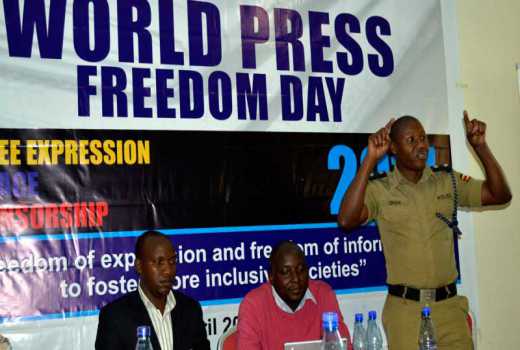×
The Standard e-Paper
Stay Informed, Even Offline

I celebrated World Press Freedom Day in Kampala, Uganda, at the Human Rights Convention 2018 hosted by a wonderful organisation called Chapter 4 (which is the Ugandan Bill of Rights) that is led by Nicholas Opiyo, whose name we would do good to remember.
The organisation defends and protects all the rights in that chapter including through using litigation to defend people charged for exercising their rights, as well as challenging laws that contradict the Bill of Rights.